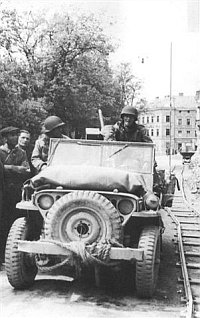De-nazification in Bavaria
Paul Hoser

When they invaded Germany the US Americans did not have standard de-nazification guidelines. Before autumn 1945 they bowed to public pressure and extended the categories of people to be removed from their posts. But since they wanted to reduce number of troops and occupation personnel considerably, they agreed to transfer the political cleanup to German agencies under their overall supervision at the beginning of 1946. The Liberation Law passed on the 5th March 1946 was an attempt to combine the US American principle of purely formal principles of guilt with an appraisal of individual guilt, which was a contradiction in terms. Before autumn 1946 US American military government thought too many subjects were being graded as followers, which it considered to be most unsatisfactory.
In Bavaria the unsystematic approach of the first Special Minister Heinrich Schmitt meant that 60 % of all decisions had to be revised under the second, Anton Pfeiffer. US policy was to change as early as the end of 1946. Under the populist third Special Minister Alfred Loritz, amnesties resolved 85 % of all cases. From the middle of 1947 on the US Americans lost interest in de-nazification. Their priority was Germany's economic capability in the face of communism in the east. So the legal floodgates were opened. The federal parliament extended its generosity to its utmost limits by passing various laws between 1948 and 1954.
It was only the actual party elites that were effected by the cleanup. The initially planned replacement of guilty elites in industry and the civil service did not occur. However, the sanctions passed by the US occupiers and the Spruchkammern (the bodies passing justice) provoked shock from those affected which challenged commitment to the new democracy. In Bavaria the rules for use of the Spruchkammer files, now in the state archives, are generous enough to open up a new avenue of research.
To the table of contents "Denazification in Regional Comparison"